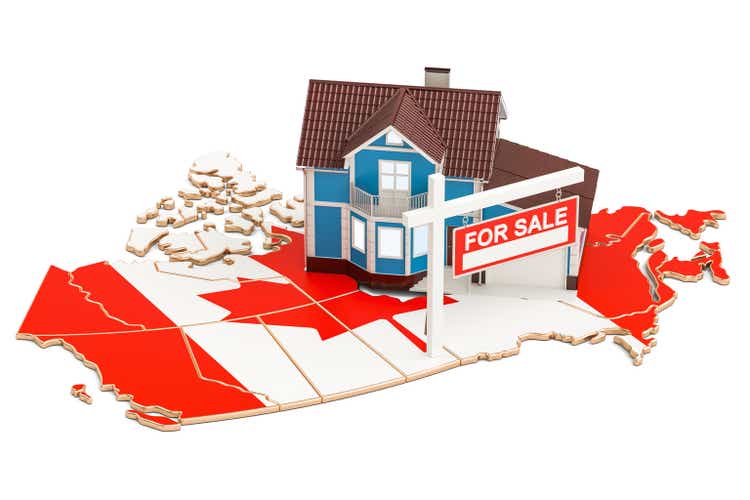AlexLMX/iStock via Getty Images
The average sale price for a Toronto home in July was $1.02 million (Toronto Regional Real Estate Board), down $133,075 (11.5%) from June 2022 and +0.2 percent or $2,520 compared to July 2021. Sales were down 44%, and active listings were up 25%, while the stockpile of available homes was up 58% from a year ago.
Over the last six months, Toronto’s average sale price has dropped more than $500,000.
So much for all the hopium about “rich Torontonians” being rate insensitive; high-priced houses are seeing some of the deepest declines:
It would appear that eroded affordability is hitting Toronto-based homebuyers the hardest; detached prices in the city proper are down 7.3%, though still sit at a hefty $1,515,762, with sales down 46.9%. Compared to February, when the average exceeded the $2M mark, Toronto house prices have slid a whopping $558,226 (-26%). A large chunk — a difference of $221,250 — has been lost in the last month alone.
Declines are still steep, though slightly less pronounced, in the 905 markets. TRREB reports prices have dropped 1.9%, to $1,320,269, down by $407,694 from February (-23.5%). Month over month, they’re down 3%. Sales in the suburban and exurban markets are down 46.9%, says TRREB.
This predictable but widely unexpected downturn (after prices doubled in record time) is sparking a classic cash crunch among highly leveraged owners and their lenders; see ‘Goodbye housing bubble, you won’t be missed’:
House flippers thought they’d actually earned something, when they often just shuffled money around and waited. Now they don’t want to admit the fun is over, and figure if they just sit tight long enough, the market will turn foolish again and they can still get their big cash-out.
Related trouble in the illiquid private equity world is just beginning as funds will be forced to mark assets to market and sell some properties to meet redemption requests; see ‘Investors sell stakes in buyout funds at a record pace’
And then there are all of the institutions, pensions, family offices and other investors who piled into ‘alternative’ funds concentrated in real estate and related lending as well as high-risk venture bets during the ‘easy’ money era.
As debt and equity prices tumble, required rebalancing and redemptions naturally force selling in the ‘alternatives’ where illiquidity tends to magnify price discounts. For a taste, see: ‘Market Rout Sends State and City Pension Funds to Worst Year Since 2009’ Meanwhile, the private equity and real estate losses since March 31st have not yet been reflected in portfolio values.
Disclosure: No positions
Editor’s Note: The summary bullets for this article were chosen by Seeking Alpha editors.


Be the first to comment